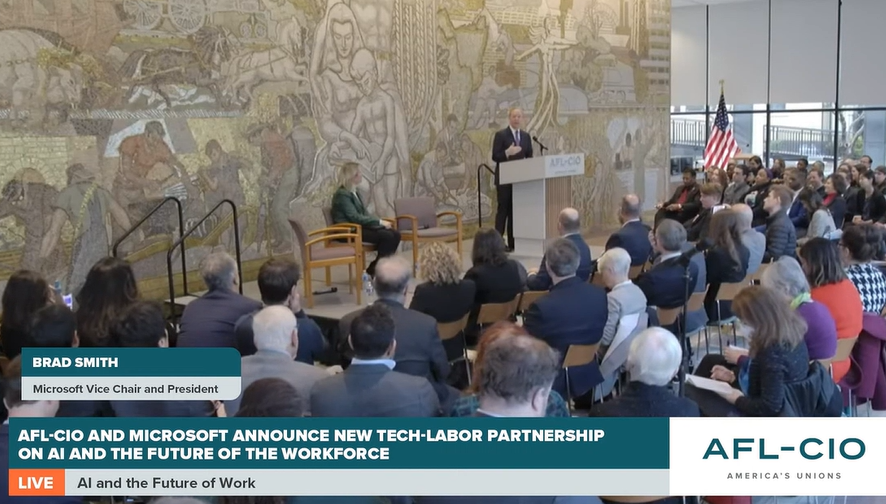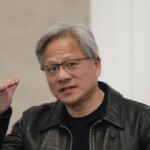At a gathering in Washington, D.C., on Monday night, AFL-CIO President Liz Shuler and Microsoft President Brad Smith engaged with the audience. Microsoft recently announced a new partnership with AFL-CIO, the nation’s largest union, to distinguish itself from competitors. This collaboration aims to tackle concerns regarding the impact of artificial intelligence on American workers.
The agreement, as outlined by AFL-CIO and Microsoft, introduces a “neutrality platform” to oversee future union-related interactions by employees. It underscores a mutual commitment to uphold employees’ rights to unionize, foster positive labor-management relationships, and negotiate collective bargaining agreements to support workers amidst rapid industrial transformations.
Discussions among workers, including recent incidents involving Hollywood writers and players, have highlighted the growing prominence of AI. Microsoft’s collaboration with ChatGPT creator OpenAI has played a pivotal role in raising awareness about the potentials and pitfalls of AI. Despite shareholders rejecting a proposal to slow down AI development for further scrutiny, Microsoft remains at the forefront of AI discourse.
The unveiling of the new coalition agreement between AFL-CIO and Microsoft took place during the Washington event, attended by notable figures like Shawn Fain from the United Auto Workers and Claude Cummings Jr. from the Communications Workers of America. This groundbreaking initiative, focusing on AI, signifies a shift in Microsoft’s approach to union matters.
Microsoft’s evolving stance on AI and labor practices, including transitioning some contractors to full-time employees during negotiations with ZeniMax, reflects a strategic shift. With a market valuation of $2.75 trillion, Microsoft now positions itself as a leading voice in navigating AI’s impact on the workforce.
While Microsoft maintains a neutral stance on unions, the labor movement has yet to gain traction among its core engineering and corporate staff. In contrast, tech giants like Amazon exhibit a more adversarial attitude towards unionization. When questioned about Microsoft’s role in shaping industry practices, Smith refrained from giving direct advice but emphasized the potential for shared learning and progress.
The event also emphasized key initiatives, such as involving employees in AI tool development, supporting skills training for job transitions, and exploring ways to leverage technology for productivity gains and wage enhancement rather than mere automation.






